SEASON THREE: Originally Aired 1998-99
The Good:
This is probably the season that all three of us love best. It’s not perfect, but it is bloody fantastic. There’s an incredibly strong story-arc to it: we finally get to see the Mayor of Sunnydale, who has been built up as a villain for the past two years of the show; there are some stand-out brilliant episodes; future plot arcs are neatly hinted at, whilst past ones wrapped up; and then there’s Faith.
Live and learn, ladies.
But all commentary on Eliza Dushku’s insane levels of sexiness aside, Faith is a brilliant character – she’s so good that she even makes up for how godawful Kendra was last season.
One thing that Kendra was good for, was showing the alternative to Buffy’s version of the Slayer. Flowri and I have spoken (at length) about how Kendra represents the regular-model Slayer: she’s cracked the books, obeyed her Watcher from her earliest memories, is all focus and discipline, no distractions allowed, whilst Buffy has friends, family, and an attempt at a social life. Spike makes an excellent point about the consequence of this in season five’s ‘Fool For Love’, that Buffy’s friends and family are what tie her to this world so she doesn’t get lost in the Slayer identity – but we’ll come to that in a later review. Shifting focus back to season three and we have Faith – the Slayer who has lost herself in the slaying. She revels in the hunt, the fight, the kill; it’s all there is to her. Faith doesn’t go to school, she doesn’t have a job, the only time we see her off-duty is when she’s trying to unwind after a hunt by cruising for guys, and she thinks she’s above the law and that normal human rules don’t apply to her. In Kendra we get the goody-two-shoes and in Faith we have your typical bad girl. Buffy represents more of a middle ground; every season of the show deals, to greater or lesser extent, with Buffy coming to terms with herself: being the Slayer, a daughter, a friend, a lover, a student, an employee – trying to find balance between different aspects of her identity.
Whilst Buffy was an influence on Kendra in the previous season, helping Kendra tap into and utilise her emotions and, well, lighten up a little, in contrast it is Faith who is the more powerful influence on Buffy – at least at first. Although initially jealous of Faith, jealous of having to share the identity of The Slayer, as the season progresses Buffy is increasingly tempted by Faith’s modus operandi and by ‘Bad Girls’ Buffy fully embraces Faith’s philosophy of “Want. Take. Have.” However, Faith crosses a line that Buffy isn’t prepared to follow her over: Faith kills a human. Whilst it is accidental, Faith’s lack of remorse is not: instead of turning to Buffy and/or Giles for help and atoning for her crime, Faith shrugs it off and embraces the dark side. Faith enters the employ of Mayor Richard Wilkins III himself – one of the greatest characters ever.
The Mayor as Big Bad was alluded to during the past two seasons and damn does it pay off. Played to perfection by Harry Groener, the Mayor is charming, genial; like a 1950s grandfather, all twinkles in the eye and offers of cookies – but beneath that veneer is a soulless monster. He’s a magnificent bad guy and serves as a wonderful parallel to Giles. Despite Giles being appointed by the Council to serve was Watcher to both Buffy and Faith (‘Faith, Hope and Trick’) we’re never in any doubt as to who is Giles’ favourite. With Buffy’s deadbeat dad less and less in the picture, Giles is clearly her surrogate father and a lovely father-figure to the Scooby Gang as a whole. Faith, however, is always a bit of an outsider to the group: she’s not invited to every meeting, she’s on her own a lot of the time, she doesn’t appear in every episode – she’s the side-kick and Buffy is the hero. And it pisses Faith off big time. A lot of her rivalry with Buffy comes from this tension: the fact that there are two Slayers when there’s only supposed to be one per generation, and Buffy got there first. Even when Wesley arrives on the scene, after Giles gets fired (‘Helpless’), it’s Buffy who gets most of his attention – although a large part of that is because Faith has already committed to her Bad Girl role and so can’t stick around to hear instructions the way Buffy can – so it’s little wonder that Faith falls so hard for the fatherly spiel the Mayor feeds her.
It’s never confirmed in the show whether the Mayor is just using Faith or not. In the Season 8 comics Faith says that others have told her she was being used by him, but all she ever felt was loved. It’s also a common theme with Buffy villains that, however evil their motives, they tend to speak the truth. Sometimes hard, horrible truths that the good guys don’t want to hear, but truths nonetheless. So it is very possible that Mayor Wilkins does love Faith as a surrogate daughter: it certainly looks that way, especially considering the evidence. Buffy manages to use this against the Mayor in ‘Graduation Day: Part Two’; she shows him the knife she used to stab Faith with and it hurts him, this reminder of Faith’s near-death status. He also visits Faith in the hospital (before he turns into a giant snake, obv) and is distressed to see her injured; and as we see in season four, he puts systems in place to try and take care of Faith in the event she survives and he doesn’t. Wilkins is to Faith what Giles is to Buffy; they’re two sides of the same coin. It’s also awesome to see the Mayor being, well, a mayor, in episodes like ‘Gingerbread’ – and his ‘To Do’ list in ‘Bad Girls’ is just priceless.
Now this is meant to be a write-up of season three, not just totally devoted to Faith, so I’ll say one last thing and then move on: The fight. Between Buffy and Faith. ‘Graduation Day: Part One’. Best. Fight scene. Ever. Oh, man, I could watch that scene on repeat for the rest of time. FANTASTIC.
Right, so, the rest of the season.
Angel is much stronger in this season – as PJ pointed out, you can really see him start to do things on his own, stepping up and doing the whole private investigator thing that will be his gig in the spin-off series Angel that started after this. There are some great scenes with Angel, too; Flowri noted how in ‘Enemies’, when Angel has to pretend to have lost his soul, it becomes clear that Angelus isn’t the separate entity that Angel wishes him to be. Angel is always talking about Angelus as a different being, removed from soul-having Angel; he doesn’t talk much about what he remembers doing when he’s soulless and everything from his mannerisms to his use of nicknames for people changes depending on whether he’s in possession of a soul or not. However, in ‘Enemies’ he fakes being Angelus far too well – he knows exactly how to play it, which he wouldn’t do if being Angelus was this vague, fuzzy, “I can barely remember it” experience. Angel tries to pass off being soulless as kind of like being profoundly drunk and not being able to fully remember your words or actions the next day – instead, it becomes obvious here that the same mind, the same consciousness and memory, is at work in both Angel and Angelus: the soul just gives him a moral compass that Angelus lacks.
Willow’s use of magic is also developed in this season; in ‘Faith, Hope and Trick’ Giles is pretending he needs to do a spell, as a pretext for getting Buffy to talk about her experience of sending Angel to hell, and when Willow offers to help it’s clear that Giles is uncomfortable about her continued exploration of witchcraft. Willow’s own abilities are her downfall: she has great power and the kind of studious, focused mind that enable her to progress quickly through magic – but as she’s moving so fast, she isn’t learning the responsibility that should come with it. It’s like Ian Malcolm says:
“…it didn't require any discipline to attain it. You read what others had done, and you took the next step. You didn't earn the knowledge for yourselves, so you don't take any responsibility for it. You stood on the shoulders of geniuses to accomplish something as fast as you could” – Jurassic Park
We’ll talk more about this in the season six review, but for now it’s a great little insight into how the plots are developing through the show.
Xander really improves in this season, too. After being mostly the comic relief in the previous two seasons, in ‘The Zeppo’ in particular he really comes into his own and becomes a character that Flowri and I do not loathe. He has moments of total-jerk-ness, which I’ll cover in The Bad and The Ugly (quelle surprise), but there are times when he’s great – stand-out Good Guy moment being buying the dress for Cordelia. Heart: melted.
On a similar note, I love how we’re already getting hints about Dawn’s arrival, like Faith telling Buffy she’s “all dressed up in big sister’s clothes” (‘Graduation Day: Part One’) and the references to Dawn in the dream-sequence in ‘Graduation Day: Part Two’.
I am also a massive fan of ‘Lover’s Walk’, for obvious reasons.
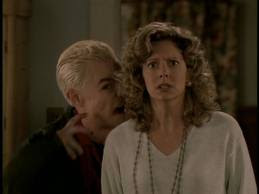
‘Beauty and the Beasts’ has a great plot, too: whilst it may be a touch heavy-handed, I love how the bad guy in this episode isn’t an actual demon, it’s just a normal guy**. It’s a great way to cover the issue of domestic violence through the veil of monsters that the show employs. This is also the season of lighter episodes like ‘Band Candy’ and ‘Earshot’, which I can pretty much watch on repeat. “Someplace that’s else” has permanently entered my vocabulary thanks to ‘Band Candy’ – and every single time I watch Buffy delivery the line “Unless you’re too busy having sex with my mother” I laugh and laugh and laugh. Plus: naughty teen Giles.
You are welcome.
Basically, the three of us pretty much established that season three is all killer, no filler. There are some less-than-great episodes, which I’ll come to next, but overall it’s damn near perfect.
The Bad:
Most of the bad in this season hinges on Xander. Again. There is also awesome-Xander, as I said, but there’s a lot of horrible-Xander, too. We were all irritated by the Willow-and-Xander romance subplot. For a start, it is so damn frustrating that every TV show ever is apparently convinced that boys and girls can’t be friends – despite the real-life evidence and experience of me and most of my friends and most of our friends’ friends. Pretty much everyone I know has friends of the opposite sex and it’s disappointing that Joss falls into the stereotype-trap and has Willow and Xander not only get into a romantic relationship, but cheat on their respective partners to do so. It’s a real slap in the face to Oz (lovely lovely Oz) and to Cordelia – especially given how Cordelia is speaking about Xander in ‘Homecoming’. She seemed to be really growing as a person and falling in love with Xander, and his cheating just knocks Cordy back into being this catty, bitchy Mean Girl again.
Boyfriend hates how Cordy is portrayed in this series and thinks it’s bad writing, that she becomes a total unreasoning, unlikeable bitch: Flowri and I see it differently. Cordy has tried being (a bit) nicer, tried playing along with this group of social outcasts, and she gets deeply wounded for her efforts. Xander and Willow are obviously to blame for their cheating; but Cordelia also sees Buffy as being partially to blame (‘The Wish’) because her hanging with Xander made him “marginally cooler” and also put him and Cordy together in all these tense, high-drama situations that made him more sexually appealing. His cheating, his rejection of her, pushes Cordelia back into being her old self – she’s tried on a different identity by being one of the Scooby Gang, and it didn’t work out, so she’s goes back to the identity she knew best.
Aside from all of this, the Willow/Xander plot doesn’t feel very real; it’s not as though the actors have this searing sexual chemistry that sells the unbelievable plot, either. It all feels half-arsed which, combined with said lack of chemistry, means it doesn’t sell the idea that Willow would cheat on Oz (lovely lovely Oz) or that Xander would give up this great relationship that he’d been building with Cordelia. The worst plot of the season, really.
There are some bad episodes, too: ‘Anne’, ‘Dead Man’s Party’, ‘Amends’ and ‘The Prom’. All do drive the plot forward (seriously: no filler) but not in especially great ways. ‘Anne’ is mediocre; ‘Dead Man’s Party’ may have one of the single greatest Giles-lines on Earth*** but overall has the characters generally behaving as unlikeable dicks; ‘Amends’ has The First, who is just stupid (I try and defend it as a villain when Boyfriend started criticizing the idea, but deep down I know that [for once] he is right and The First is nonsensical); and ‘The Prom’ is a bit twee. But so help me I get moved despite myself when Jonathan presents Buffy with the Class Protector award.
Moving swiftly on…
There are also some gaping logic fails: the one that stands out being when Willow uses a tranquilizer dart on VampWillow in ‘Dopplegangland’. Seriously? A tranquilizer? On a vampire?!
How the hell would the drug work? How would it circulate through something that has no circulation?!! It’s like Spike suffocating Drusilla in ‘Becoming: Part Two’ – it makes no damn sense within the internal logic of the show and is really something that should have been picked up on and edited out.
There’s also the first few appearances of Angel. For contractual he-has-to-appear-in-every-episode-because-he’s-a-credited-character reasons, Angel is featured in episodes from the beginning of the season. The problem is that Angel is in a hell-dimension until ‘Beauty and the Beasts’, so can’t exactly feature as per usual. It’s clear that he was just wedged in for the sake of it, with dream-sequences aplenty, and it feels like lazy writing. Although there are a few good episodes of Angel and some great appearances of the character in this season, overall I think it would have been way better if Angel had stayed dead after Buffy sent him to hell at the end of season two. I think the writers agree with me, too: Buffy whinging “I killed Angel” is a recurring motif of the show, conveniently overlooking the fact that he came back. It’s a little bit more traumatic and dramatic if he’d actually stayed killed, after all.
The Ugly:
We genuinely struggled to think of any Ugly from this series, but as ever we fall back on that ol’ favourite: Xander.
He has highs and lows in this season: the low being sending Faith to kill Angel when Xander discovers that Angel is back from Hell (‘Revelations’). Again, this is Xander acting out of purely selfish, nasty reasons: he still has a thing for Buffy, is still jealous of Angel, and so he tries to have someone executed. It’s also a pretty shitty way to treat Faith – Xander sends her out like his own personal attack-dog. Yes, he goes with her, but he’s not fooling anyone: there’s sod-all Xander can do against Angel and he knows it. He knows it’s Faith who will be in the firing-line and if he genuinely believes that it’s soulless Angelus who is back, then he’s sending Faith to face possible death just so he can have his rival taken permanently out of the picture.
Plus, after the fall-out from being caught cheating with Willow, whilst Willow shows genuine remorse and makes extreme efforts to prove to Oz that she’s sorry, has changed, and is worth taking the chance on rebuilding trust with, Xander seems reluctant to accept any blame. It’s Cordelia who gets shoved out of the Scooby Gang (which we’ll see again with Anya in season six – seriously, Xander, shitty guy) – no damn wonder she gets her vengeance on in ‘The Wish’ – whilst Xander seems to get away scot-free. He even continues dishing out the verbal barbs to Cordy every time they meet, all because she wouldn’t accept his apology. He comes across, as ever, as mean, petty and low.
So that’s a wrap for season three, folks! Next time, the dizzy highs and crushing lows of season four.
Gasp! as Buffy drinks beer!
Tremble! as the government are involved in a conspiracy!
Thrill! as Faith reappears on scene…!
* I’ll link it here as soon as it’s written up.
**‘Great. Now I’m going to be stuck with serious thoughts all day.’
***‘ “Look at my mask! Isn’t it pretty! It raises the dead!” Americans.’






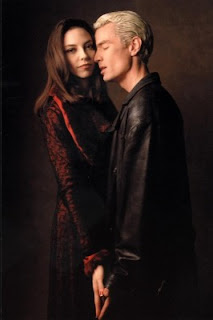



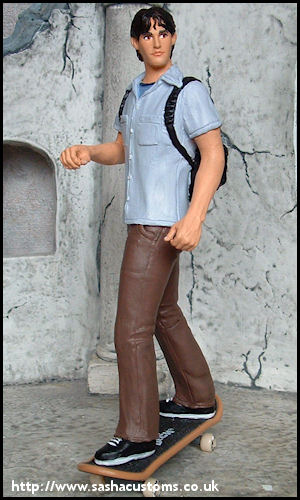
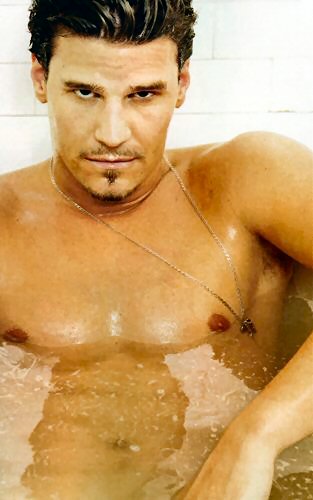


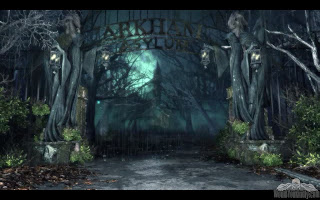
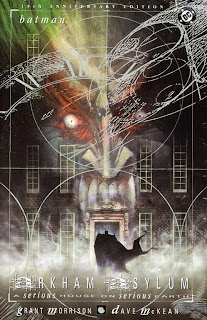
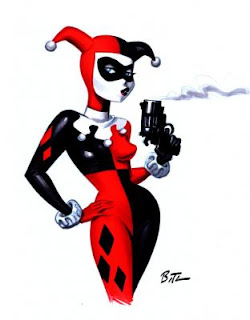






 2.Print out and colour in Stanley, any way you like.
2.Print out and colour in Stanley, any way you like. 4. Email the photos and details of your first name, where you went and what you did with Flat Stanley to:
4. Email the photos and details of your first name, where you went and what you did with Flat Stanley to: